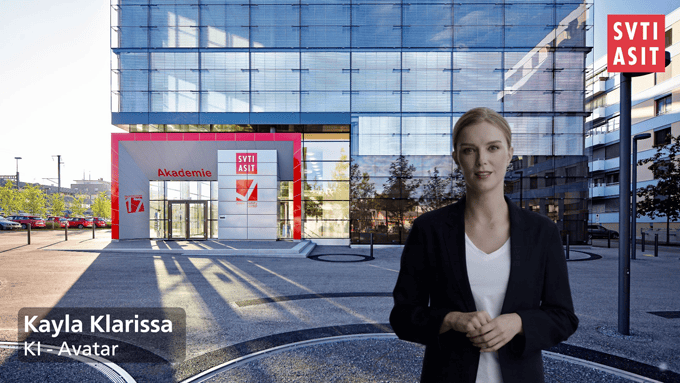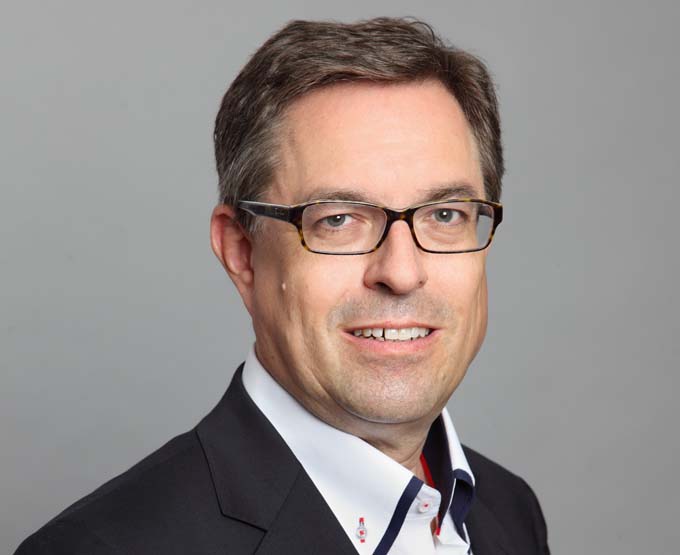The power of imperfection: How even incomplete data enables measurable success
In times of information overload and constant distraction, generating attention has become the fundamental challenge of marketing. But: communication must generate resonance - only then will the in-depth engagement with the brand arise, which ultimately leads to a purchase decision.
 Resonance is generated by communicating in a target group-specific and, in particular, needs-based and personalized way: at the optimal time, in the right place, with the right medium, a relevant message and therefore highly individualized. Knowledge about potential customers and therefore the quality of the available data in customer relationship management (CRM) plays a decisive role here. This leads to new challenges, as this data is often not up-to-date, incomplete and therefore only appears to be of limited use for marketing purposes.
Resonance is generated by communicating in a target group-specific and, in particular, needs-based and personalized way: at the optimal time, in the right place, with the right medium, a relevant message and therefore highly individualized. Knowledge about potential customers and therefore the quality of the available data in customer relationship management (CRM) plays a decisive role here. This leads to new challenges, as this data is often not up-to-date, incomplete and therefore only appears to be of limited use for marketing purposes.
Current data
Put simply, we know: The more up-to-date and complete the customer data in the CRM, the higher the company's sales potential. The trick is therefore to use limited resources to quickly and efficiently create a data basis for various measures such as cross-selling or lead scoring. Marketing automation delivers reliable results in this context. It stands for the gradual, data-based and therefore targeted development of communication channels and campaigns across all communication channels, digital and print. The focus remains on brand and market-oriented communication with its specific operational marketing objectives. This is almost automatically accompanied by the continuous enrichment of existing CRM data: This is because scheduled or triggered communication optimizes the database in every loop - both for future marketing measures and for sales.
Scalability
Another advantage of CRM-based marketing automation is its scalability: based on so-called trigger elements, the communication route is set up once for each event and can then be automated and played out continuously. Through specifically integrated dialogue elements, reactions and thus data from the target group are recorded promptly so that the performance of the campaign can be measured and optimized. This transparency makes it possible to align marketing and sales strategies as a whole directly with market feedback.
Which triggers can be used to pursue which operational marketing goals? How and where does the print channel improve results?

Programmatic media campaigns
In the next step, for example, programmatic media campaigns with the aim of generating leads (newsletter registrations, etc.) would be conceivable. Existing customer/CRM data can be digitally anonymized, matched with online parameters and translated into target group segments. Advertisers whose data depth is not (yet) sufficient can use curated data segments from well-known data providers or even have individual custom audiences created. These are then stored as targeting in the campaign platforms for the targeted playout of digital advertising content.
Overall, marketing automation represents a pragmatic solution to the challenges of modern multichannel marketing. By enabling data-driven and therefore targeted communication, it paves the way for efficient use of existing, even incomplete data and for updating, supplementing and continuously generating relevant additional information. The scalability of this method and the prompt responses offer additional flexibility and enable efficient adaptation to internal resources as well as the needs of a fast-moving market.
*Alex Schmid is Topic Lead Dialog at Farner.








 Kitzbühel is known worldwide as one of the most exclusive winter sports resorts in the Alps. Brandpulse has created a differentiating brand strategy for the iconic brand in a comprehensive rebranding with a new design and new brand experience, which should also appeal to younger target groups.
Kitzbühel is known worldwide as one of the most exclusive winter sports resorts in the Alps. Brandpulse has created a differentiating brand strategy for the iconic brand in a comprehensive rebranding with a new design and new brand experience, which should also appeal to younger target groups.

 Which are the most valuable brands in Switzerland? Brand Finance reveals this again this year in the new Switzerland 50 2024 Country Report. There have been shifts in the positions of the top ten brands from Switzerland: Zurich, for example, made up one place with 26 percent growth and replaced the pharmaceutical brand Roche in 4th place. Rolex (watches) and UBS were also able to close the gap to the top with double-digit percentage growth.
Which are the most valuable brands in Switzerland? Brand Finance reveals this again this year in the new Switzerland 50 2024 Country Report. There have been shifts in the positions of the top ten brands from Switzerland: Zurich, for example, made up one place with 26 percent growth and replaced the pharmaceutical brand Roche in 4th place. Rolex (watches) and UBS were also able to close the gap to the top with double-digit percentage growth.

 The so-called hyperdigitalization confronts us with various challenges and opportunities. The younger generations, the so-called hyperconnected customers, were born into this era and are facing up to the ongoing changes. But what makes today's consumers tick and what basic behavioral patterns or needs must a brand pay attention to?
The so-called hyperdigitalization confronts us with various challenges and opportunities. The younger generations, the so-called hyperconnected customers, were born into this era and are facing up to the ongoing changes. But what makes today's consumers tick and what basic behavioral patterns or needs must a brand pay attention to?

 Retail sales in terms of value rose slightly again at a high level and amounted to CHF 103 billion. In total, Swiss retail sales rose by around half a billion Swiss francs to 103 billion Swiss francs in 2023. This corresponds to an increase of 0.5% compared to the previous year. Population growth and the positive trend in the food sector in particular contributed to this development.
Retail sales in terms of value rose slightly again at a high level and amounted to CHF 103 billion. In total, Swiss retail sales rose by around half a billion Swiss francs to 103 billion Swiss francs in 2023. This corresponds to an increase of 0.5% compared to the previous year. Population growth and the positive trend in the food sector in particular contributed to this development.

 The family-owned company Nahrin is known here in Germany for natural foods such as bouillons and seasoning mixes, as well as food supplements. Internationally, the Nahrin brand also stands for natural cosmetics. Until now, however, the international distribution partners only had limited communication tools available for the brand presence of the cosmetics range. With the expansion into new markets, the need for harmonization of the visual and communicative appearance increased.
The family-owned company Nahrin is known here in Germany for natural foods such as bouillons and seasoning mixes, as well as food supplements. Internationally, the Nahrin brand also stands for natural cosmetics. Until now, however, the international distribution partners only had limited communication tools available for the brand presence of the cosmetics range. With the expansion into new markets, the need for harmonization of the visual and communicative appearance increased.



